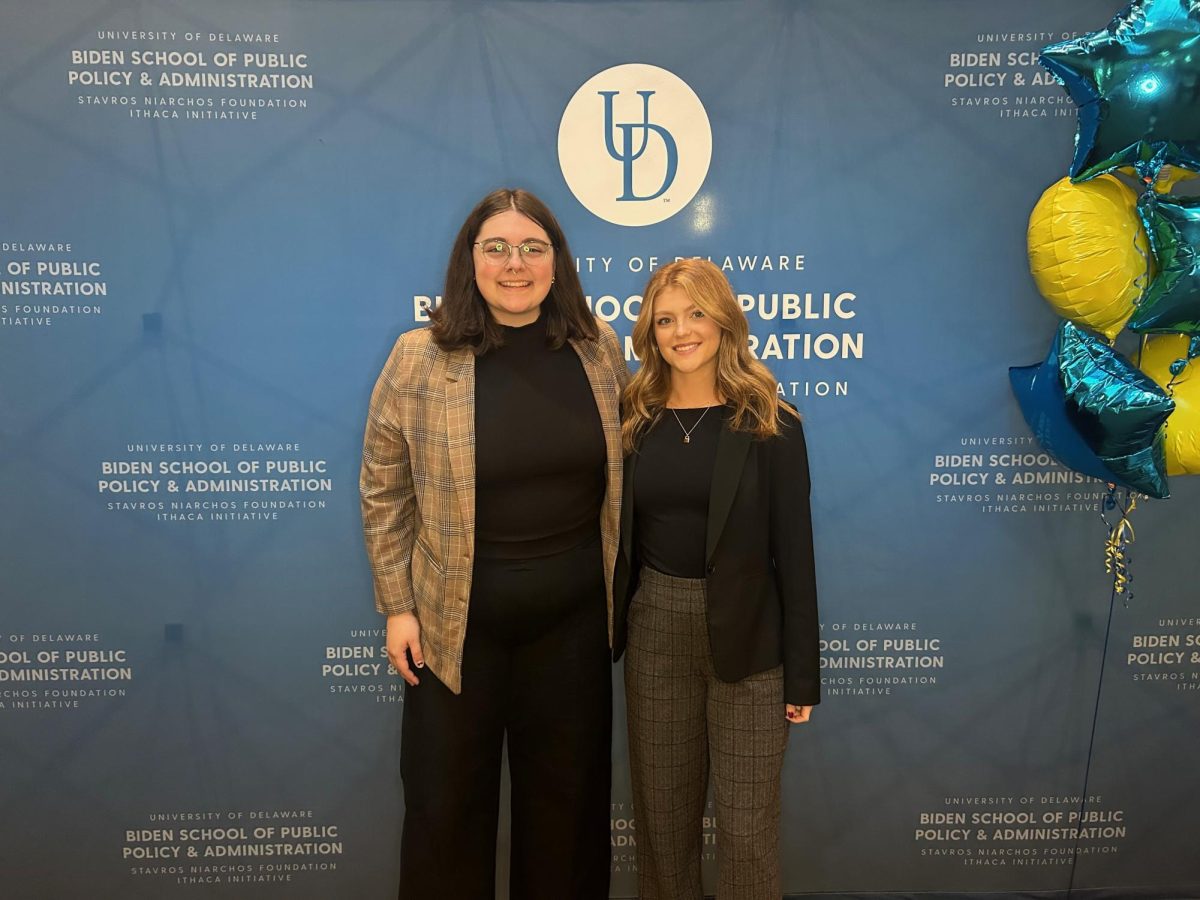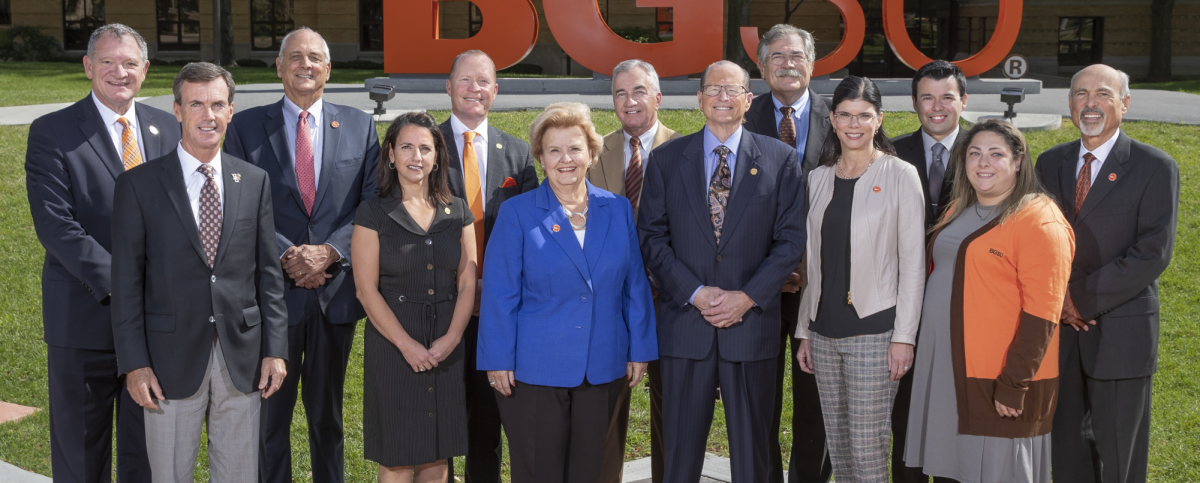Students have the chance to make history today’ by voting to either keep or repeal the Undergraduate Student Government’s original resolution on the Stroh Center. According to University historian Gary Hess, who has chronicled important University moments in history, there has never been a student vote on an issue as important as this one such as raising tuition rates, he said. While the vote is strictly about USG’s original decision to approve the Stroh Center, most’ undergraduates are concerned about a $60 fee that will be tacked onto’ all’ students’ tuition once it opens in the 2011-12 school year.’
An estimated $50 of the fee will go towards funding the Stroh Center, $10 for parking improvements. ‘It’s a significant expression of student activism, and I think it deserves attention,’ Hess said. ‘ All this week, the administration has spent more than $4,000 on advertisements. The BGSU Foundation has also spent roughly $3,500 dollars promoting the Stroh Center and urging students to vote ‘no,’ supporting USG’s resolution. There have also been two e-mails sent by President Carol Cartwright to students urging them to vote. While the administrative advertisements are mostly informative, most of the administration, including Cartwright, have taken the ‘Pro Stroh, Vote No’ stance. ‘The University would like students to vote ‘no’ to support the Stroh Center,’ Cartwright’ wrote in one e-mail sent to students. ‘It will be a terrific addition to campus and benefit students for decades to come. I believe this project is absolutely essential to the long-term success and prosperity of Bowling Green State University.’ Residence halls, fraternities, sororities and other campus communities are also encouraging students to vote in favor of the resolution. Residence halls will be in competition for $1,000 in programming based on which living quarters have the highest voter turnout. ‘We’re trying to encourage students to vote and educate students to be informed on the issues of the Stroh Center,’ said Sarah Waters, senior associate director of residence life.
Waters said by offering an incentive, more students would be encouraged to vote. ‘We just know campus needs to turn out and vote,’ she said. While some departments on campus are offering incentives for the vote, this referendum would not have been created without the Coalition for USG Reform’s effort. By protesting their discontent of USG’s actions and voting procedures, the group petitioned and secured enough signatures, forcing USG to rewrite their original resolution and propose the new referendum. While the coalition is neither for nor against the Stroh Center, they are in favor of informing people to the best of their abilities while properly educating students, founder of the coalition Steve Currie said. ‘It is imperative that people come out and make an informed decision,’ Currie said. Currie, who said he does not want students to be influenced by catchy slogans, fancy buttons and propaganda, said getting the information out in a non-biased way is how all of the Stroh Center procedures should have been dealt with in the first place. In the future, if USG and the administration can effectively communicate the way they have been doing, Currie said he would be happier with a system of keeping students informed. ‘The coalition’s job did more than collect signatures to enact this referendum, but proved to the administration that a large amount of students do care and can make informed decisions,’ Currie said.
This would be shown by having more than the 10 percent voter turnout for tomorrow’s vote, he said. ‘I think this is the most important decision students are going to make during their time here at Bowling Green. This is a monumental decision, and the best part is every student gets a voice,’ he said.













